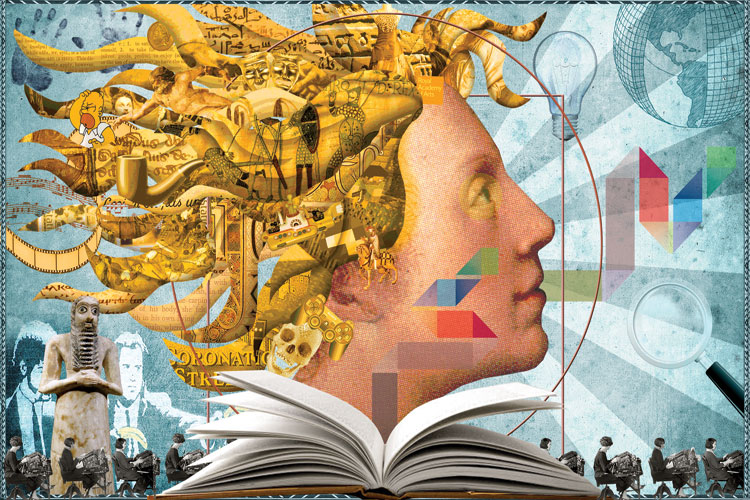Studying The Humanities Is More Important Than Ever

We live in a world that is dominated by loud, authoritative voices – voices that most of us listen to and trust. Despite the overwhelming availability of information and different perspectives on the internet, our search engines and social media accounts are, if anything, making us more isolated, and more likely to listen to our favourite authoritative voice. The result? It is becoming increasingly difficult to separate truth from false, satire from manifesto, and good-intentions from bad ones. This is hardly a new problem – for centuries, dating back at least to the Romans, a good humanities education was valued as complementary to our natural intuition, helping us decide who we should trust. Yet more and more students are routinely discouraged – by the education system, by their friends, by their parents – from developing an interest in the humanities. This needs to change.
I was recently talking with my youngest brother, who just started Year 7, when he informed me confidently that ‘I know the bible is always right because it even included the dinosaurs!’ Putting aside the theological discussion, I was struck by how confident he was. When I asked him how he knew this, he told me that he had read about it on a website after he searched ‘did the bible talk about dinosaurs’ on Google. He was content with a single source, which he found through a biased search: as an historian, this bothered me greatly, so I proceeded to search ‘the bible doesn’t talk about dinosaurs’ and showed him a number of articles that claimed the exact opposite to what he believed. He quickly got bored of the discussion, and went to watch TV. This is a silly example, but it highlights a key issue with the internet: once we have searched for, and found, an opinion we like, it becomes our anchor for future debates. Showing my brother three contrary articles wasn’t enough to convince him to change his opinion, because it was already set in stone. This is precisely what the study of History sets out to break: writing a good essay from KS3 all the way to A-Level is all about weighing up different opinions, from different sources, and justifying which one you believe in through a conclusion.
History can help you take an academic perspective to the things you read – English, on the other hand, allows you to take an emotional perspective. The recent US elections were rife with emotion: from President Trump tweeting in Capital Letters, to CNN hosts reverting to name-calling, it was difficult at times to know how to feel. Politics aside, I found myself rapidly cycling through emotions depending on the article I was reading – sometimes angry, sometimes worried – and I quickly realised that while different news agencies were reporting the same facts, they were using different language, which caused these varying emotional responses. The English Language GCSE is widely disliked by students, who are routinely told to interpret sources without much indication as to why this is an important skill. Identifying the types of emotions words are trying to illicit feels pointless in an exam, but becomes poignant during a tumultuous election. It helps you separate facts from emotions, and dig deeper into why an article is trying to illicit a certain emotion from you.
Equipping children with the tools to not only read, but also analyse what they are reading, is a critical step in their development. History and English are great examples of humanities that teach some of these tools, while also broadening students’ understanding of the world, and setting them up to accept diversity and debate. These skills have always been important, but they are perhaps even more important in the internet era. This is not to say that the sciences aren’t important – on the contrary, having an understanding of maths, statistics, and the natural world is just as important for choosing which voices to trust. But with medical school applications surging in the past year, and the government encouraging many in the arts to ‘re-skill,’ it is worth stepping back and remembering that humanities have immense value, and that studying them is more important than ever.
Oz is an English, History, and Maths tutor with Newman Tuition (as well as being one of our former students). To book a lesson with him, or one of our other excellent tutors, please call us on 020 3198 8006, email us at he***@**************co.uk, or complete the form on the ‘Contact Us’ page.